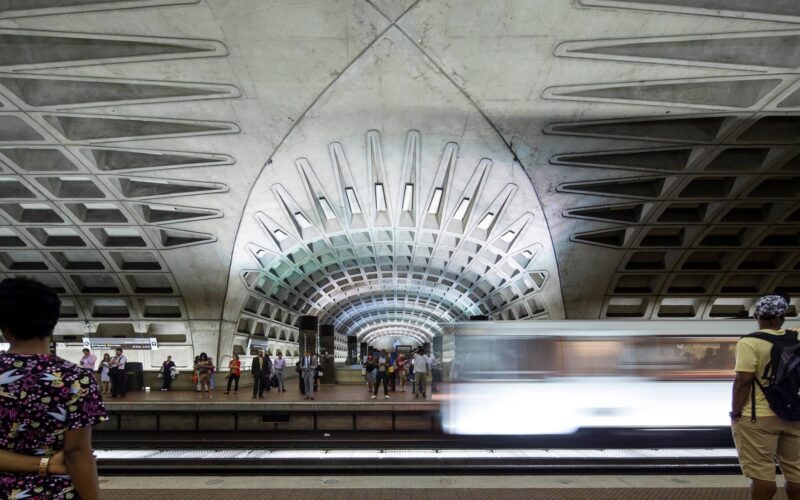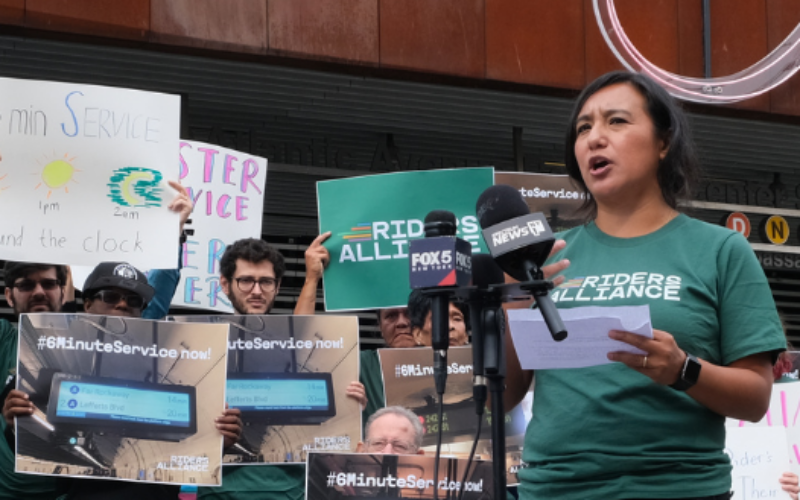
 The country’s largest transit agency is withdrawing from the country’s main transit trade association.
The country’s largest transit agency is withdrawing from the country’s main transit trade association.
In a letter dated April 8, top executives of New York’s Metropolitan Transportation Authority wrote they were canceling the agency’s membership in the American Public Transportation Association, known as APTA.
APTA is theoretically a league of all American transit agencies. To understand the magnitude of the MTA’s withdrawal, though, it’s worth reiterating the extent to which discussions about public transportation in this country are really discussions about the MTA. In 2015, the MTA accounted for 35 percent of all U.S. transit ridership—an even higher percentage than ten years ago despite substantial transit investments elsewhere in the country. The idea of a transit industry association that doesn’t include the MTA is akin to an OPEC without Saudi Arabia.
The essence of the MTA’s complaint is that APTA is not worth the investment. In the letter, officials noted the agency pays $400,000 per year because of its size but in return has little influence within the organization (though it’s worth noting even that fee pales in comparison with the salary of APTA President Michael Melaniphy, whose total compensation approached $900,000 in 2013). Not one of the major northeast transit agencies is on APTA’s governing executive committee despite their relative importance to U.S. transit policy. For no readily apparent reason, members of the committee include people from six relatively small agencies in California.
Though at first glance just a case of some transit industry inside baseball, the MTA’s withdrawal hints at a larger disagreement in how transit agencies view APTA’s purpose as an industry association.
For a generation, APTA has served as a good cheerleader for transit in Washington, never meeting a funding story it couldn’t spin positively or a transit project it didn’t like. When President Obama signed into law last December the first major piece of transportation legislation in three years (known as the FAST Act), APTA’s chairwoman called it “a great day for America.”
As transit advocates know, the FAST Act basically maintained the pro-highway status quo. Yet APTA’s stance did not stem from a misunderstanding, but rather from an attitude that it is better for public transportation providers to applaud the sliver of federal funding they have carved out rather than fight for changes to federal policy that would meaningfully benefit transit riders and agencies.
This attitude, in fact, has longstanding precedent. Here is political scientist James Dunn describing how President Reagan’s secretary of transportation lobbied behind the scenes to win votes for a 1982 gas tax hike:
He began by solidifying the transit lobby’s support. He promised to create a mass transit account in the highway trust fund that would receive 20 percent of the revenue from a five cent per gallon tax hike (the “transit penny”). This convinced many big city Democrats and liberals to support the measure despite their concern over the effects of the tax on the poor.
Transit’s compromise seemed necessary at a time when the roadbuilding industry benefited from a dedicated trust fund and transit begged for crumbs. And inadvertently or otherwise, APTA largely still promotes the idea that as long as a portion of Highway Trust Fund money flows to transit, the industry should be satisfied.
That math no longer works. For starters, voters across the country continue to express support for most pro-transit initiatives. This trend, combined with increased attention to highway boondoggles, is creating as strong a case for the importance of transit as has ever existed in the last 30 years. But not all the news is good. In real terms and on a per-capita basis, the U.S. is near a 25-year high of federal transit spending even after adjusting for inflation. Yet there has been no substantial increase in national per-capita ridership (perhaps, it should be noted, because federal highway spending is also near a 25-year high).
Overall ridership, in fact, would be lower than before the recession if not for the MTA and the growing popularity of transit in New York generally.
These problems point to APTA’s dual failure. On Capitol Hill, the association has not been an effective advocate of an increased role for transit. And within the transit industry itself, APTA has not worked to make sure its members spend their money well through investments in quality transit service that create communities of frequent riders. While some transit providers have made genuine improvements in recent years—such as Houston’s bus network redesign and the University Link light rail extension in Seattle—APTA has done little to educate members about the differences between the most innovative work being done and the white elephant transit projects that are unfortunately much more common.
These issues were not likely root causes of the MTA’s decision to leave APTA. But the agency’s withdrawal nonetheless presents an opportunity to re-examine the way the conversation around public transportation has developed both in Washington and peer-to-peer within the industry. Transit providers, transit workers, and transit riders deserve an industry that is more honest with itself about what it will take to produce lasting improvements to American public transportation—including critical thinking about the primacy of highway spending in Congress. The MTA’s leaders might not know it, but in prompting the conversation they have done an unexpected favor for transit and the country as a whole.
 On the Brink: Will WMATA’s Progress Be Erased by 2024?
On the Brink: Will WMATA’s Progress Be Erased by 2024?
The experience of being a WMATA rider has substantially improved over the last 18 months, thanks to changes the agency has made like adding off-peak service and simplifying fares. Things are about to get even better with the launch of all-door boarding later this fall, overnight bus service on some lines starting in December, and an ambitious plan to redesign the Metrobus network. But all of this could go away by July 1, 2024.
Read More Built to Win: Riders Alliance Campaign Secures Funding for More Frequent Subway Service
Built to Win: Riders Alliance Campaign Secures Funding for More Frequent Subway Service
Thanks to Riders' Alliance successful #6MinuteService campaign, New York City subway riders will enjoy more frequent service on nights and weekends, starting this summer. In this post, we chronicle the group's winning strategies and tactics.
Read More